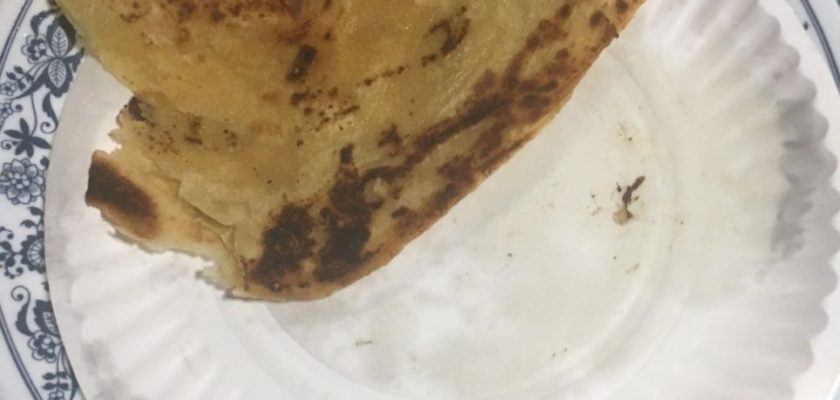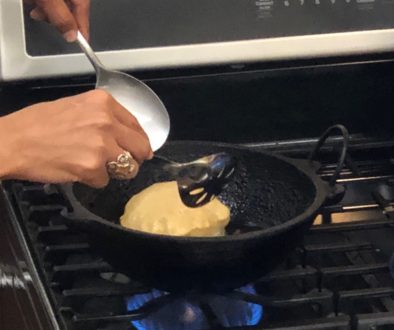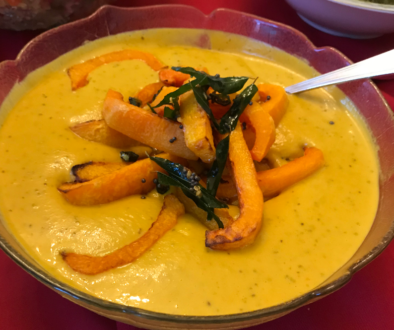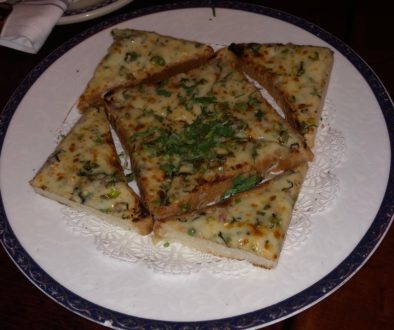Kabab Royalty
By Mathew Peacock

Buttery chapati on oil stained plate
In 2020, I began teaching an Indian food, blogging and photography class at Willliams College, Massachusetts. At each session, students prepared a protein, lentil, vegetable, and bread or rice dish. We concluded the class by sitting around a table, talking and eating all the delicious food prepared.
The class included a Jackson Heights restaurant tour and we observed two chef’s – from Drunken Munkey and Rahi – demonstrate their cooking skills. Below are some of my student’s blog posts.
“Careful young man,” says the patron of Kebab King as I make my way out of the restaurant. I had left my cell phone in the main dining room and had come to retrieve it. His warning could just as easily applied to the food served by this magical Pakistani joint as it did to my youthful forgetfulness. The Jackson Heights establishment serves up bountiful servings of Kebab, Biriyani and Chapati on long tables that belong in a castle rather than a local urban space. The dishes delight and enrapture and customers will have difficulty drawing themselves away.
Kebab King comprises of two rooms both of which are worlds apart. The street level houses the kitchen and counter resembling a pizza by the slice joint in Midtown. Fluorescent lights illuminate the interior and flow out into the street, beckoning weary travelers like a lighthouse guiding sailors from stormy seas. Upon entering the second level one encounters a room fit for a royal banquet or a weekly bingo gathering. Some twenty odd tables about thirty feet in length line the room from end to end. Mirrors populate the left side of the room while white and blue checkers pattern the ceiling. Ornately carved wooden chairs with “Kebab King” etched on the back surround the tables like thrones. The dining room is like a scene out of Alice and Wonderland: mirrors, thrones and checkers add to the upside down world that is Kebab King. This comparison adds to the message the establishment projects: at Kebab King the Kebab is not royalty, rather the customers are treated as such. From the second floor banquet hall amidst widespread housing shortages in all of the boros, to the thrones that surround long tables that could support a medieval feast, Kebab King provides service fit for royalty.
In a matter of minutes the table is flush with Biriyani, Kebab and Chapati. Allegedly created in the kitchens of the Mughal Empire sometime between the sixteenth and nineteenth centuries, the Goat Biriyani is quite a fitting dish for the royal allure of the Jackson Heights joint. Bone in goat laces rice bursting with cardamom, coriander and nutmeg. The crispy exterior of the meat blankets the buttery interior while the spice laden rice accents the dish with an exit monologue for the ages.
The Chapati provides a buttery tour de force that can only be compared to the Pakistani equivalent of the croissant. Long strips of chapati flake off the central body upon touch and produce a symphony of butter, dough and charcoal that inundates the senses. Even in the absence of a sauce the customer can scarcely restrain themselves from reaching for more.
As I exit the banquet hall I am transported to the times of the Mughal as I leave technology behind. As I retrieve the phone from the kind staff I am at the center of their warmth and service once again. To the staff each customer is a Kebab King or Kebab Queen, a one of a kind service in the region should not be neglected.
Mathew Peacock is a junior at Williams College double majoring in History and Chinese. Matthew is a member of the Cross Country and track teams and sings in the Springstreeters, one of the college’s many a cappella groups. Matthew currently lives in New Jersey but he grew up in the Netherlands, the UK and Switzerland, sampling many cuisines along the way.







